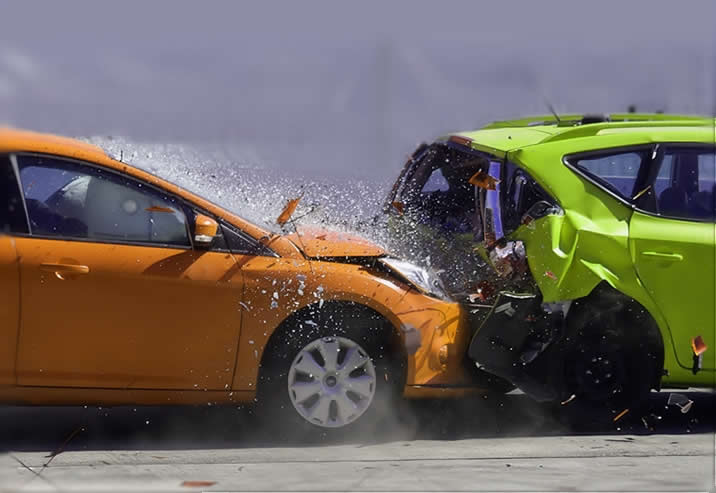Car manufacturers have been using the same vehicle braking technology for decades. Over the years, there have of course been improvements, but essentially the same robust and effective technology remains intact.
The reason being is that it works very well and is extremely reliable. With that in mind, unless you happen to be driving a very old and neglected car, or your vehicle receives some damage that directly affects your brakes, then it’s extremely unlikely that you’ll ever experience total brake failure.
However, there are situations that may result in a significant loss of braking ability. If and when this happens, it’s often unexpected, shocking and can result in panic. There are two common reasons why your brakes may fail; driving through water, and an occurrence known as ‘brake fade’.
Driving Through Water
Problem
Driving through deep water, or driving fast enough through a puddle so that water splashes up and through the wheels will engulf the brakes in water. If you brake shortly after, you may experience a loss of braking. The brake pedal feels as firm as usual, but the car fails to slow down as quickly. This is simply because the brake discs and pads are covered in a layer of water.
Solution
If your brakes fail to respond effectively after driving through water, release the brake pedal and apply again to expel the water. All modern cars have disc brakes where braking ability is restored quickly via 2 or 3 pumps of the pedal after driving through water.
Brake Fade
Brake fade is a reduction or total loss of your car’s braking systems ability to slow or stop the vehicle. The brakes on the front of your car have metal discs which rotate with the wheels. Static brake pads press against the rotating discs and create friction which in turn slow or stop the vehicle. This friction causes considerable heat, usually between 100 °C to 200 °C for typical driving. The pads and discs can safely maintain heat of up to around 600 °C.
Problem
Brake fade usually occurs due to excessive or prolonged heavy braking. Excessive heat will cause a loss of friction between the brake pads and disc. Example of brake fade are:
- Overheating the brake pads – The pads are heated beyond their ability to remain stable and begin to break down. The brake pedal will remain firm as usual, but there will be a noticeable decrease in stopping power.
- Overheating the brake fluid – A hydraulic system is used to push the brake pads hard against the brake discs to enable you to stop. This system uses hydraulic brake fluid and if it overheats, it boils. You’ll notice a significant loss in braking performance, plus your brake pedal will feel soft and spongy.
It may prove beneficial to understand when you may be a risk of brake fade. An example of when brake fade can occur is:
- Descending a long, steep hill
- Braking while carrying a much heavier load than normal
- A combination of both of the above
Solution
Brake fade is a serious issue and you’ll need to think quickly to avoid picking up speed and to reduce the potential of a heavy collision. Here’s what to do if you have brake fade:
- Immediately change down gears. For example for a manual transmission, go from 6th gear to 3rd or from 4th gear to 2nd. If you’re traveling at high speed and in 6th gear, dropping it into 1st gear will cause mechanical damage. If your vehicle is automatic, use your sequential gears, or put the lever in L. This will allow the vehicle to begin slowing down by using engine braking.
- Look for escape routes. If the road ahead has for example; queues of traffic, pedestrians, houses, then look for a side road that has fewer hazards. Only make the turn into a side road if it is safe to do so at your current speed.
- Use grass verges and small bushes to help slow you down.
- Continue to pump the brakes and press as hard as possible to gain any braking ability remaining.
- If all of that fails, you’ll need to consider the safest object to make impact with. Ideally choose small trees or hedges rather than solid / non-flexible objects.

